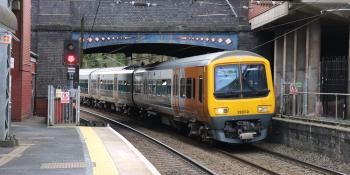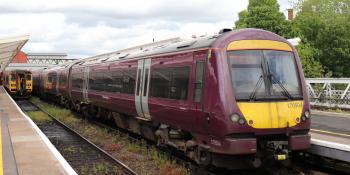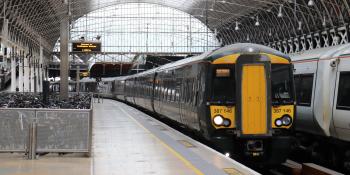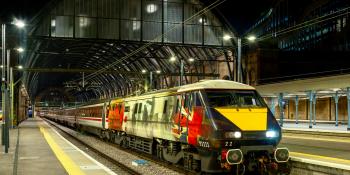Major stations could lose facilities in cull
Proposals to close almost all ticket offices in England were announced on 5 July, with even major stations such as Euston, Paddington, Waterloo, Birmingham New Street and Manchester Piccadilly proposed to lose their facilities. The future of ticket offices at 974 stations being considered under consultation which closes on 26 July.
Announced by the Rail Delivery Group – although Modern Railways understands the proposals were firmly driven by the Treasury and Department for Transport – the proposals were subject to public consultation which was due to run until 26 July. Only Merseyrail, London Overground and MTR Elizabeth line are unaffected in England by virtue of their concession arrangements, while operators in Scotland and Wales are controlled by devolved administrations.
Under the proposals, most ticket offices would be replaced by staff in ‘multi-skilled’ roles on platforms and concourses offering assistance to passengers. The RDG says only one in eight tickets – 12.5% - are sold via a ticket office and that 99% of products can be sold at ticket machines or online. However, Modern Railways also understands this figure includes tickets bought at unstaffed stations, meaning the true percentage of tickets bought from stations with ticket offices is unknown.
Furthermore, detailed figures released by Great Western Railway suggest that at some stations with ticket offices the proportion of tickets sold is significantly higher than the RDG’s claimed average. At Barnstaple, 77,466 tickets, accounting for 45.5% of the station’s total, were sold via the ticket office. For Paignton the percentage was 41.3%, while at many other stations GWR operates, more than one in five sales were made via the ticket office. Most other operators did not publish this level of detail of information.

Although the details of where and when stations will be staffed vary by operator, the full range of products will not be available where ticket offices have been closed. These include season tickets, railcards, refunds, seat reservations, rover tickets and excess fares. Great Western Railway says alterations to Advance Purchase tickets will no longer be possible by any means if all its ticket offices are closed.
For tickets which cannot be bought at machines, RDG says they will be available on trains or – if it has a ticket office – at the destination. Industry insiders say only ‘as many tickets as possible’ currently available from ticket offices will be moved to digital services and ticket machines.
The RDG claims the move will not affect train operators’ ability to provide wheelchair and mobility support and that mobile assistance teams will be created to offer extra help where needed.
Reaction
The announcement drew strong reaction, with newspaper columnists across the spectrum of the press opposing ticket office closures. Disability charities also opposed the move, pointing out that closure of ticket offices would make rail travel more difficult for some passengers.
Shadow Transport Secretary Louise Haigh called for the consultation to be halted, saying: ‘Railroading this botched plan through in just 21 days, without consideration for staff and disabled passengers, only risks exacerbating the managed decline of the rail network.’ Labour’s Greater Manchester Mayor Andy Burnham said he was considering a legal challenge to halt the consultation.
Railfuture Director and Vice President Stewart Palmer said: ‘Great British Railways is nowhere to be seen. The current arrangement where no-one is seemingly in charge and the Government hides behind the train operators simply doesn’t work.
‘There were many open goals that were missed to make best use of what already exists – Chiltern’s ability to issue any ticket from a Welcome Desk, Northern’s Ticket Vending Machines (TVMs) issuing more types of tickets, East Midlands Railway having a comprehensive ticket issuing machine for its guards – all these could have been selected for much wider deployment and, if together, were to become standard practice across the whole of the national rail network, then current service level to passengers could have been delivered in a different way.’
Broadcaster and author Richard Osman also weighed in on social media, saying: ‘I think ticket offices at railway stations are one of those things that remind of what a society should actually be. Real jobs and real interactions, and community can sometimes be placed above shareholder dividends. It's a choice we can make.’
The announcement drew a harsh reaction from the RMT, with General Secretary Mick Lynch describing it as a ‘savage attack on railway workers, their families and the travelling public’. He also called it ‘catastrophic’ for elderly, disabled and vulnerable passengers and claimed the government wants to ‘de-staff’ the rail network. He also claimed some train operators were issuing RMT members with statutory redundancy notices.
Operator plans
Avanti West Coast, Chiltern Railways, Govia Thameslink Railway, Great Western Railway and South Western Railway are proposing closure of all their ticket offices, including major stations.
Ticket offices remaining open for other operators are:
- c2c: Basildon, Benfleet, Fenchurch Street, Grays, Southend Central;
- East Midlands Railway: Derby, Leicester, Lincoln, Nottingham, St Pancras and Sheffield;
- Greater Anglia: ‘Customer Information Centres’ at Cambridge, Chelmsford, Colchester, Ipswich, Liverpool Street, Norwich and Stansted Airport;
- London North Eastern Railway: Doncaster, Edinburgh, King’s Cross, Newcastle, Peterborough and York;
- Northern: Barrow-in-Furness, Blackburn, Blackpool North, Bolton, Bradford Interchange, Glossop, Harrogate, Hartlepool, Leeds, Liverpool Lime Street, Manchester Oxford Road, Manchester Victoria, Rochdale, St Helens Central, Salford Crescent, Skipton, Warrington Central, Wigan Wallgate;
- Southeastern: ‘Travel Centres’ at Ashford International, Bromley South, Canterbury West, Dartford, Dover Priory, Hastings, London Bridge, Charing Cross, St Pancras, Victoria, Margate, Rochester, Sevenoaks and Tonbridge;
- TransPennine Express: Huddersfield and Manchester Airport;
- West Midlands Trains: Birmingham Snow Hill, Milton Keynes Central, Northampton, Nuneaton, Sutton Coldfield, University, Walsall, Watford Junction, Wolverhampton and Worcester Foregate Street.
To respond to the consultation, visit www.transportfocus.org.uk/train-station-ticket-office-consultation/ or for stations in the London area, via London Travelwatch at www.londontravelwatch.org.uk/ticket-offices-have-your-say/




